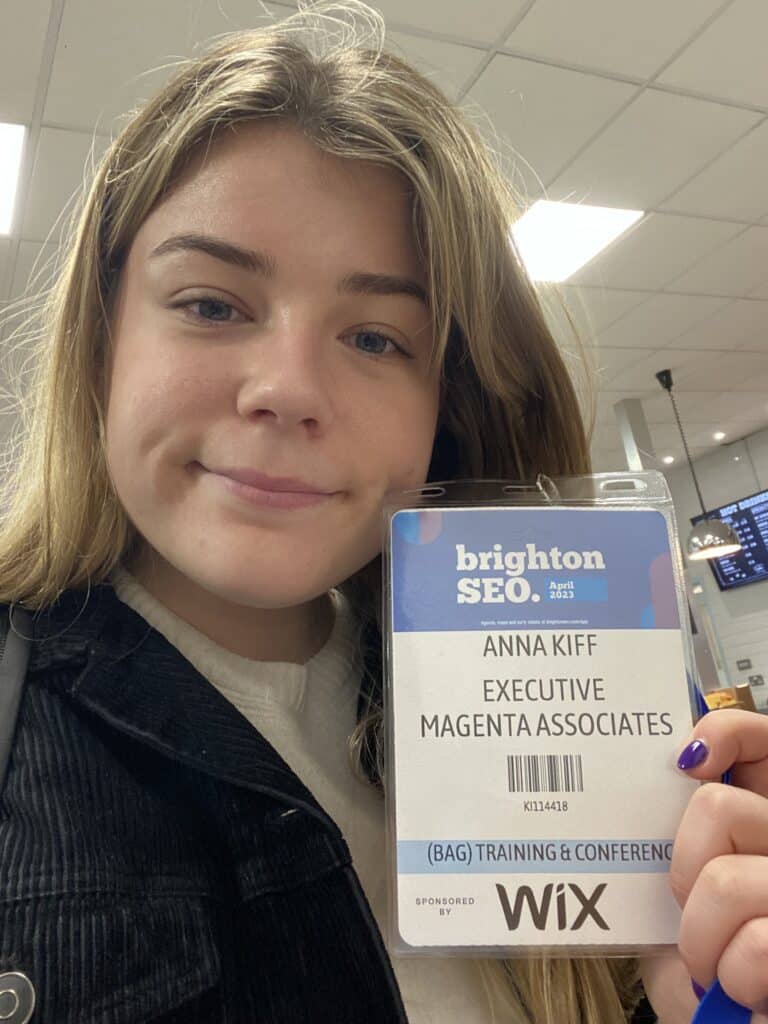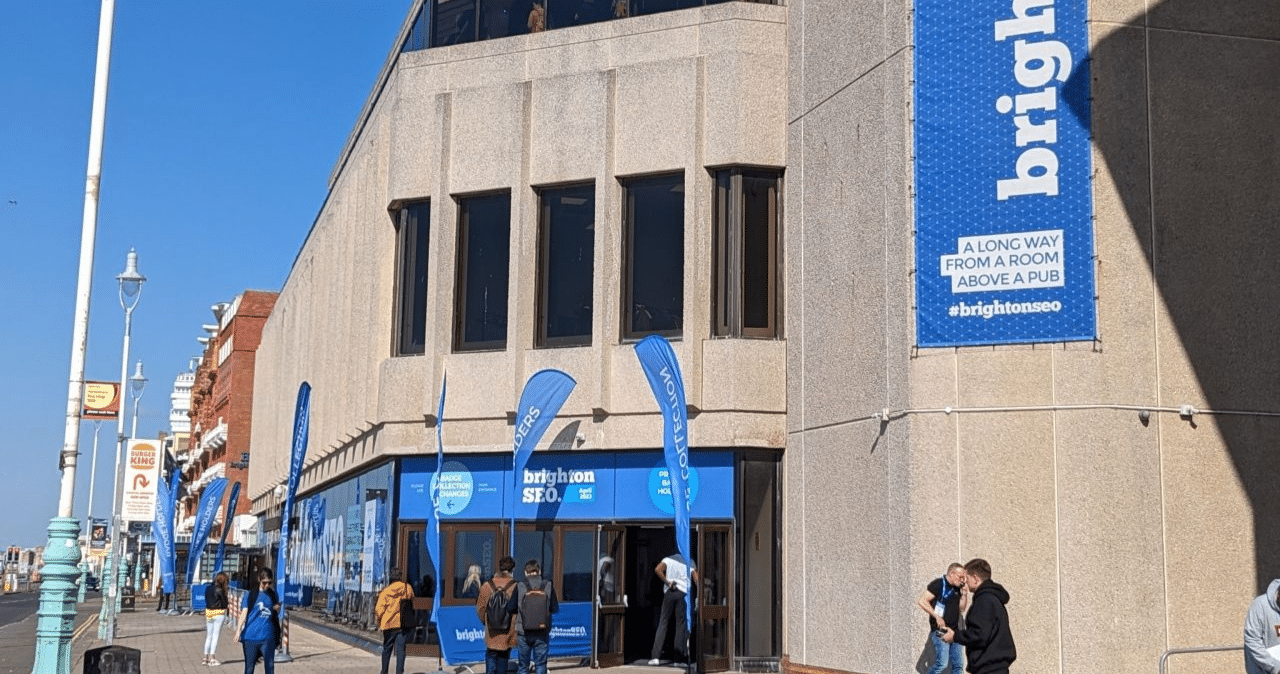Last week I attended BrightonSEO, the world’s biggest search marketing conference, with my colleague Greg Bortkiewicz. What started out in a room above a pub over 10 years ago now takes place twice a year at the Brighton Centre with more than 6000 attendees from over 100 countries.
This year, the conference once again went beyond expectations and the speakers delivered poignant, high-quality talks across a range of topics. Here’s a summary of our top five takeaways from the two days.
AI and its future
AI was a big topic of conversation at the event. As with every digital aspect of the world, AI is having an impact within the search engine optimisation (SEO) community. Some approach it with fear, and some with open arms! The conference’s viewpoint was angled toward finding a healthy middle ground. Generative AI tools, such as ChatGPT, isn’t something to be afraid of, but it certainly won’t solve all our problems with the click of a button. The technology can be used as a very practical tool in every SEO’s toolbox.
It can be helpful for content automation, to help writers come up with ideas or start off a piece when struggling with writer’s block. However, AI also still has its limitations, including difficulty citing accurate sources and not being up to date with the current events of the world.
These thoughts align with our recent white paper: generative AI and its impact on the communications industry. We spoke to various voices across the industry about the effects of AI and the future of the technology. You can download the paper for free on our website.
User research
Completing user research seems like an obvious thing to say, but is often overlooked. When undertaking changes to your website, for example, or launching a brand new one, you will ideally conduct keyword research to optimise your pages. However, your competitors will also have access to that same data and will likely be using it. You need to talk to your users to gain a full understanding of their needs and challenges they want solved when they visit your site. This is insight that you can’t find anywhere else.
User research doesn’t need to be a huge undertaking. Talks from the conference revealed that if you speak to just five people they will identify 85 per cent of issues on a website or product. Gathering this valuable information will not cost your business extensive time and money and will help you to reap great benefits.

Sustainability
Conversations around climate change and how SEO’s can work more sustainably remained top of the agenda. It’s estimated that 4 per cent of global greenhouse gases are created by websites, said Nick Vines in his web performance talk. Whilst 4 per cent might not seem like a large portion, this would equate to ‘websites’ being the 5thmost polluting country on the planet. You can check out your websites carbon footprint online, along with recommendations for how to minimise it.
One of the quickest ways to reduce your website’s carbon footprint is to improve your page site speed. This can be done via:
- Improving core web vitals score
- Reduce the amount of ‘stuff’ people need to download to be able to load your website
- Reconsider the extent of video and image content
- Use standard fonts
- Use static pages
When it comes to sustainability, the future is now. We must be making better decisions that support both our businesses and the planet.
Google Analytics 4
As part of the conference offering, I also attended a training day about GA4 migration. As we quickly approach the July 2023 deadline at which Universal Analytics (UA) will be redundant, it is important that for those who haven’t already made the transition to GA4 to familiarise themselves with the new system.
The main change that people need to be aware of is the measurement models. What was considered different hit types in UA, such as pageview hit, social hit, user timing hit, are now all measured against an events model with different parameters. The idea is that any and all interactions on your website are now considered ‘events’ on the site.
Keyword rankings
In the SEO world, keyword rankings are often considered the number one goal of a project. Getting your client to the top of Google search is the accolade everyone wants. BrightonSEO reminded us that rankings shouldn’t necessarily be the goal of a project, but they are an important step. Ranking for relevant keywords should help generate leads, sales and business growth.
An Ahrefs study found that 90 per cent of all the pages on the internet get 0 clicks. So when devising a content plan, we must be very strategic about the target audience and how it is going to potentially help them. From there, you can make informed decisions and write better copy that will perform well in Google and resonate with readers.
SEO expertise at Magenta
As always, the BrightonSEO conference was a fantastic event with experts from across the industry coming together to learn from each other. And the karaoke with a live band was also great (videos available on request)!
If you’d like to find out more about how Magenta can support your business with its digital goals, visit our search engine optimisation page or contact Greg on greg@magentaassociates.co.








